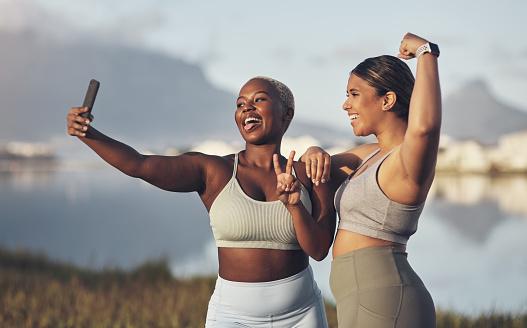Building a body-positive mindset.
In the world of sports, speed, strength and skill often take center stage. But behind this fast and furious race to be the best is a teen trying not only to manage the pressure of performance, but also navigate a complex relationship with their ever-changing body. Parents and coaches play a pivotal role in shaping how their teen sees themselves both on and off the field.
Self-comparison and negative body-image.
While young athletes often enter a sport with a focus on learning and fun, they soon become aware that some are better than others, and that not everyone will be picked for a spot on a team. It is natural for us, young and old, to compare ourselves to others as a way to identify areas of improvement. However, a focus on self-comparison to an outer ideal can lead to:
- low self-esteem and body dissatisfaction
- disordered eating (restricting calories or bingeing)
- overtraining
- eventual burnout and quitting the sport they once loved
During adolescent years, young bodies are changing quickly (or slowly for some), and many teens, especially girls, may see a negative impact on performance from junior high to high school as they cope with their shifting shapes. Boys are not exempt either. While many boys will steadily increase in power and strength throughout high school, some will not experience this growth until much later, resulting in anxiety and insecurity.
What you say matters.
Parents and coaches can support teens through this tumultuous period in many ways.
- Focus on fueling and fun, not flaws. Help them shift attention from a hyperfocus on weight to a focus on healthy fueling, hydration and sleep. Supporting their body with the proper nutrients, rest and recovery, including time for fun, will help them stabilize emotions and find their own ideal body size and shape. It is all too common for well-meaning adults to suggest that a growing athlete may simply need to “drop a few pounds to improve performance.” This can contribute to a negative body image that persists for many years.
- Educate on healthy relationships with food. Help your teen (or team) avoid using food as punishment, or restricting intake to boost performance. Avoid body shaming and negative body talk at home or in the locker room. Sometimes it is easy to miss negative body talk. It may come in the form of glorifying those who are on trendy and restrictive diets that don’t allow for adequate calories for a growing body. Establish a relationship with a sports nutritionist who can help in planning healthy snacks to sustain energy. An ideal nutrition plan for an athlete will not look the same as someone who does not have the same training demands. Looking to TikTok or other non-athlete friends for advice can steer them in the wrong direction.
- Watch early for red flags. Menstrual irregularities, repeated injuries, or unexplained plateaus in performance can all be red flags of eating disorders. As training ramps up with age, it is easy to miscalculate fueling needs, resulting in various health issues like Relative Energy Deficiency Disorder (REDS). If left unaddressed, these fueling deficiencies can imapact short and long-term health, including mood swings, bone health, heart and digestive health and future fertility issues. Talk to a professional for questions.
- Create a mastery environment. In a performance environment, athletes are measured only by their ranking against others. While this is an inevitable part of sport and life, prioritizing performance can lead to decreased confidence and motivation, as well as anxiety and burnout. A mastery environment focuses on individual growth and celebrates the process of learning and skill development. It promotes an excellence mindset, where an athlete strives to do HER or HIS best, rather than always comparing to others. Research supports a mastery environment as conducive to enhanced self-esteem, confidence, and higher levels of intrinsic motivation and overall enjoyment of the sport. These same qualities can boost body-positivity.
The most important influence is YOU.
Perhaps the most important thing you can do to help your teen develop a positive self-image and greater confidence on and off the field is to monitor your own words and actions. How do you talk about food? How do you talk about your body as it changes day to day and over the years? How do you talk about wins and losses, or setbacks and challenges?
We all experience days we wake up and are not too thrilled with what we see in the mirror. Or days we realize we “can’t do that thing the way we used to.” Learn to acknowledge the negative thoughts and then reframe it in a way that supports your own mental health and well-being. Check in with how you treat yourself on a daily basis, because this is the model your teen will be watching to create their own habits.
Love is not just an emotion. It is an action. Love yourself and love your body every day to live your best life and to help your teen do the same.


